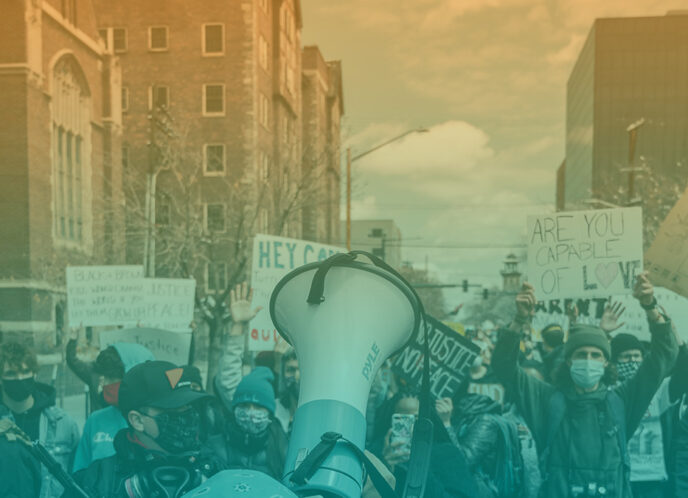For Immediate Release: December 7, 2022
Contact: Christina DiPasquale, 202.716.1953, [email protected]
ICYMI: Op-ed from James Kilgore on E-Incarcerated Activist Victory for Freedom from Federal Prison in Truthout
On Monday, Truthout published the op-ed “Prison COVID Policies Fall Short. Incarcerated Activists Fight for Their Lives,” by James Kilgore–researcher for MediaJustice’s Challenging E-Carceration project and director of advocacy and outreach for FirstFollowers Reentry program, and Victoria Law–a freelance journalist who focuses on the intersections of incarceration, gender and resistance. In the piece, Kilgore details the victory of e-incarcerated activists, securing the freedom of incarcerated people amid the inconsistent application of former Attorney General Barr’s March 26, 2020 memorandum–authorizing the Bureau of Prisons to release people to home confinement to stem the spread of COVID-19 behind bars.
By August 2020, federal authorities claimed they had released over 30,000 people, the largest mass release in U.S. prison history but the process was beset by bureaucratic confusion, inconsistent policy application, and the inadequacies of a BOP risk assessment tool known as PATTERN. The vast majority of those incarcerated were placed on house arrest with an electronic monitor and faced the ever-present threat that once the government declared the pandemic over, people would be returned to prison.
Although their efforts attracted little media attention, this op-ed describes the coordinated resistance for the next year and a half that developed into a vibrant and effective form of self-organization, extending beyond prison walls.
Please feel free to reach out for interviews with James Kilgore about this organizing effort and MediaJustice’s Challenging E-Carceration project.
Below are some excerpts from the piece:
“The Danbury 100 and their allies in other prisons wrote successful petitions for clemency, argued for the release of eligible people whom the BOP had refused to set free, created two Facebook groups to share crucial information, and pushed back when the BOP tried to re-imprison people for petty violations of the rules of electronic monitoring and home confinement. ‘Our passion came from getting [the] medically vulnerable out,’ Kraus-Heitmann told Truthout.
“Of the 40,000 people released from federal prisons between March 2020 and summer 2022, only 11,000 were released under the CARES Act. According to the BOP, less than 6,000 currently remain on home confinement. The others have completed their sentences, but most remain on the federal version of parole, known as supervised release.
“Thousands, however, were released and, despite the myriad restrictions and intrusions, able to rebuild their lives. As Brooks pointed out, after two years, only eight people released under the CARES Act were returned to prison for new criminal charges, proving that authorities ‘could release people and communities could still be safe … there are community outlets that could be utilized to keep people on the outside.’
“The BOP might deploy a set of bureaucratic praise singers to convince outsiders that the agency combined efficiency and compassion in their pandemic plans. But the real angels of mercy were the militant firebrands among the incarcerated population. This was especially true at Danbury, where women connected and cared for each other while building organizations and networks, finding ways to utilize social media with help from outside organizers (since internet access is forbidden), and mobilizing legal resources to get free.”
For more information or an interview with James Kilgore, please reach out to [email protected].
###
MediaJustice is dedicated to building a grassroots movement for a more just and participatory media—fighting for racial, economic, and gender justice in a digital age. MediaJustice boldly advances communication rights, access, and power for communities harmed by persistent dehumanization, discrimination and disadvantage. Home of the #MediaJusticeNetwork, comprised of more than 70 grassroots partners, we envision a future where everyone is connected, represented, and free.



